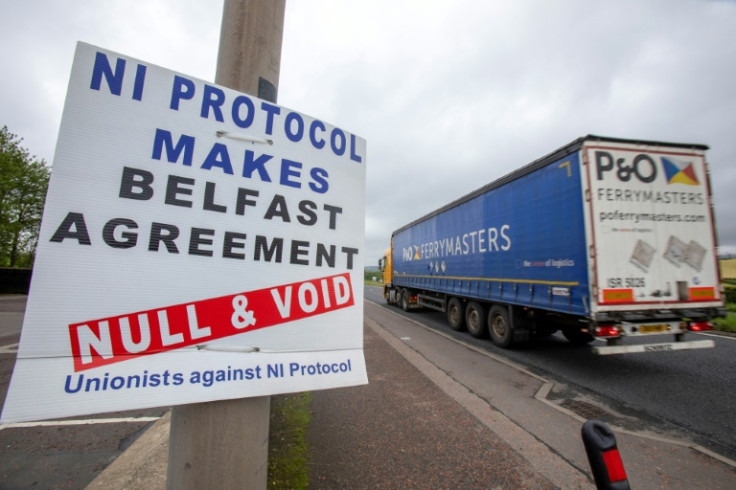EU, UK discuss N. Ireland post-Brexit trading problems
Monday's talks in London were described as "cordial and constructive."

UK Foreign Secretary James Cleverly on Monday met EU Commission Vice-President Maros Sefcovic to discuss problems in Northern Ireland surrounding post-Brexit trading arrangements.
London and Brussels have been negotiating for months to try to ease the tensions over new Northern Irish trade arrangements which treat the province differently from the rest of the UK.
Together with UK Northern Ireland secretary Chris Heaton-Harris, they "took stock of work to find joint solutions to the concerns raised by the businesses and communities in Northern Ireland", a joint statement said.
"They underlined the EU and UK's shared commitment to protect the Belfast (Good Friday) Agreement in all its parts, while protecting the integrity of both the EU Single Market and the UK internal market," it added.
EU-UK relations were strained during former British prime minister Boris Johnson's tenure, after he introduced legislation to unilaterally overhaul the so-called Northern Ireland Protocol he had agreed with the bloc in January 2020.
That draft law is still progressing through parliament but the tone of more recent diplomacy since Rishi Sunak became prime minister in October appears to have improved.
Monday's talks in London were described as "cordial and constructive".
"They agreed that while a range of critical issues needed to be resolved to find a way forward, an agreement was reached today on the way forward regarding the specific question of the EU's access to UK IT systems."
This, they said, was a "critical prerequisite" to building trust and "provided a new basis for EU-UK discussions".
EU and UK technical teams would begin work to rapidly identify solutions in a range of areas "on the basis of this renewed understanding" and the three men would meet again on January 16, the statement added.
The protocol was signed separately from the trade and cooperation deal that cemented the UK's formal departure from the European Union in January 2021.
But its implementation has proven a flashpoint for disagreement between the bloc, member state Ireland and the UK.
The deal kept Northern Ireland in the European single market and customs union, stipulating checks on goods moving from the rest of the UK to Northern Ireland.
That was designed to prevent a "hard" border between Ireland and Northern Ireland -- a key plank of the 1998 Good Friday Agreement that largely ended three decades of conflict.
However, it has enraged hardline pro-UK unionists, including the Democratic Unionist Party (DUP), leading to their boycott of the devolved assembly in Belfast since February.
A deadline is approaching in the coming weeks for the resumption of power-sharing body. The government in London has warned it will call fresh elections if unions stay away.
© Copyright AFP 2025. All rights reserved.




















